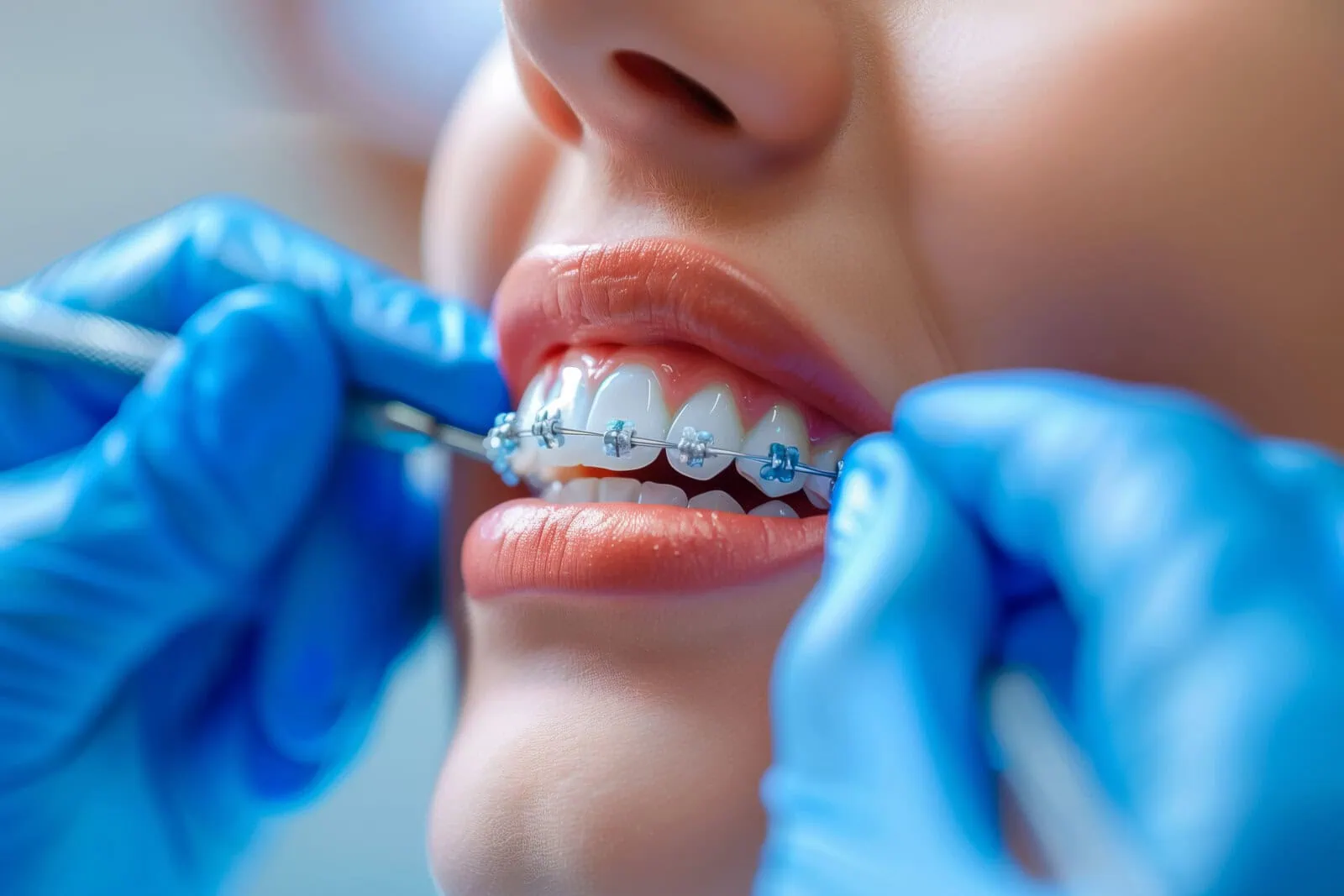From the teething stage to wiggling baby teeth, all the way to permanent teeth and their maintenance, your child should be provided with top-notch oral care. In fact, the American Academy of Pediatric Dentistry (AAPD) recommends finding your child’s “dental home”– a comfortable, familiar office to regularly visit and receive oral care– by age one.
Baby teeth actually form in the womb, and are present before your child is even born, even though you won’t see them emerge until about four to six months of age. When baby teeth do emerge, it’s especially critical to maintain proper hygiene, cleaning the teeth and gums after meal times and avoiding issues associated with baby bottle tooth decay (bottle rot) and sippy cup use.
In our previous “Preventing Dental Issues in Children” , we covered a few ways to help care for young childrens’ teeth. While great care at home is an integral part of caring for oral health, there is one area in which a professional dentist alone can help: orthodontics.
What are orthodontics?
While dentistry is a broad practice covering everything from cavities and tooth decay to infection and emergencies, orthodontics is a specifically focused practice that deals with issues like occlusion, overbite, and other issues of tooth alignment and growth. An orthodontist can help with prevention and resolution of these issues, providing treatments like braces and appliances.
What causes crooked teeth?
A wide variety of behaviors and factors can cause crooked teeth. Crowded teeth, thumb sucking, tongue thrusting, premature loss of baby teeth, and a poor breathing airway can all contribute to poor tooth positioning. Hereditary factors such as extra teeth, large teeth, missing teeth, wide spacing and small jaws – all can be causes of crowded teeth. Genetics and behavioral factors both impact your child’s dental development and the growth of their teeth. As mentioned, the care and monitoring of baby teeth can help to predict and prepare your care team for your child’s dental development down the line.
When should my child be evaluated?
A child should be evaluated by an orthodontist by age 7, according to the American Association of Orthodontics (AAO). While most children this age don’t require immediate treatment, it’s helpful for a doctor to be able to follow the growth of their teeth and detect any issues early on, before treatment is needed. This helps parents and care teams plan ahead and predict future dental issues before they become problematic.
Why should I start orthodontic treatment early?
Believe it or not, serious oral issues can be best prepared for and corrected before the permanent teeth emerge. Although baby teeth do eventually fall out, their placement and care helps to predict and guide the growth of adult teeth. Intervention is easiest when a patient’s skull is still growing and flexible.
Adequate space for permanent teeth to erupt is an indicator that these teeth will grow in straight, which can significantly impact the amount of time braces are needed, and the long-term effectiveness of the treatment.
Doing orthodontic treatments in two steps provides excellent results, often allowing the doctor to avoid removal of permanent teeth and jaw surgery.
- Phase-1 treatment is conducted when some of the baby teeth are still present.
- Phase-2 treatment occurs after all of the permanent teeth have erupted.
How does orthodontic treatment work?
Tooth movement is a natural response to light pressure over a period of time. Pressure is applied by using a variety of orthodontic appliances. The most common orthodontic hardwear are braces or brackets attached to the teeth and connected by an arch wire. Periodically changing these arch wires puts pressure on the teeth. At different stages of treatment your child may wear headgear, elastics, a positioner or a retainer. Most orthodontic appointments are scheduled 4 to 6 weeks apart to give the teeth time to move.
To ensure the effectiveness of hardware and appliances, and to create a proactive position in your child’s orthodontic care, early intervention is critical. Many children are frightened by the prospect of orthodontic care– they may hear rumors that “braces hurt,” or be concerned about allowable foods, long-term commitments, and other common factors in orthodontic care. At Kennedy Dental Care, we know how important it is to reduce fear surrounding oral healthcare.
Our team specializes in pediatric and adolescent dentistry. We offer friendly, informative service to your family, even bringing in the Tooth Fairy and our adorable therapy dog, Scout, to help calm your child’s fears. Our orthodontists are trained in the proper way to address issues and talk to your child, ensuring that fear is minimized and the importance of treatment is explained thoroughly.
Kennedy Dental Care isn’t just another dentist’s office– it’s your family’s dental home. Learn more about our mission here.
Don’t delay your child’s orthodontic care. Book an appointment now for early intervention and effective treatments.



